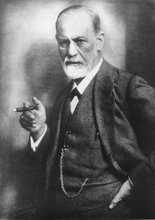Thursday, March 08, 2007
Is this the best Cabernet wine because God says so ? An essay in God and morality
It has been widely believed that God is necessary in order to have and maintain a system of morality or moral knowledge. Away from God, this system will fall into the subjectivity of individuals and their prejudices in distinguishing right from wrong. Killing is wrong because God says so, and we can’t rely on people’s judgment to decide if it is right or not.
in this post the previous statement will be analyzed, it is not an easy task, so be patient ;)
a little story to start with:
Toni is fond of wine (who is not?) he mainly relies on his own olfaction to decide which bottle of wine he will buy. His friend Jeff is also wine fanatic, but he is always dependent on the famous wine taster Geo’s opinion in deciding which wine bottle to buy. One day Toni asked Jeff how he knows that Paul’s advice is accurate; Jeff replied “Paul’s wine selections are always of supreme quality” Toni’s great philosophical mind found this answer ambiguous, so he replied “but is it this wine selection good because he says that it is good, or is this wine good because it is actually a good Cabernet-sauvignon one?"
So to put this question in our moral dilemma’s terms
Are things wrong because God says so, or does God say that they are wrong because they are?
This dilemma was first put by Plato; there are only two possible answers or options.
Let’s examine the second option first. God declares that things are wrong because they are. Based on our wine example, wine may be good or bad independent from Paul’s opinion. He only facilitates the selection process; consequently a good bottle of Cabernet-sauvignon is a special treat even if Paul says the opposite.
Similarly things are right and wrong independently from God judgment. He is just confirming the fact and facilitates (or compels) its application. A code for right and wrong exists independently from God. So why we need him to confirm this standard if it’s already out there? We can help ourselves directly to this universal standard.
Now let’s turn to the first option. The omnipotent, omniscient God actually decides what is right from what is wrong. Once more following our wine example, if Paul, our expert wine taster, decides that certain type of wine is rubbish, it will be used by Jeff to season salads and to grill meat. But how do we know that Paul’s opinion is correct? How we can be sure that he will not declare a bottle of balsamic vinaigrette as a good merlot wine one? Jeff will answer back saying that Paul is so good and famous that any bottle he claims to be a good wine will certainly be a good one, but there is a huge contradiction here, Paul is the one who defines our idea of good wine, so what we are actually saying is: the good wine according to Paul, will be always a good wine according to Paul ;)
in the same way, if God states that killing is right, it will be right. But even the most faithful believer will not agree that killing is right (sometimes, people from all major religions do justify killing for specific reasons and in certain conditions, but they will never agree that killing per se is good, as a concept). Furthermore this will make morality system no less arbitrary decided by God than decided by any one of us. However God is good, as our friend Paul, so he can not declare such horrible thing like killing a good act, but if God is the one who decides right from wrong, he will be always good, because we are saying that God (which by this definition is good) is good by his own laws. It is like saying God is God or that Paul’s wine is always good.
On the same line, God who says killing is good will be a good God, because our measures of “goodness” will be based on his definition.
Now someone can say: maybe you are right, God is not needed to define good and bad, but he is definitely needed to force people to acknowledge and to do good stuff by the heaven and hell duality (this is a popular belief even among some existential philosophers). it sounds like a convincing idea, but following this logic, one can not say that atheists can not distinguish good from bad, they definitely do good stuff even if they don’t attributed to God. In this case they are acting on a free will basis, and not fearing the punishment or seeking the eternal life. Atheists’ actions are much more mature and deserve respect since their deeds are based on their conviction rather than on an imposed contractual obligation.
Conclusion:
Moral knowledge is independent from religion in the sense that people are able to distinguish good actions from bad ones, and to behave morally even if they are not religious. I am not saying in any way that people should or should not be religious, this is an absolutely personal decision, everyone decides his way to meet his spiritual needs. Nevertheless, the notion that the only way to moral knowledge is through religion is disingenuous. In the end, religious books are full of moral codes, however people choose the moral facts that are coherent with their existing moral point of view and they reinterpret or just simply ignore the rest! (more examples will be provided upon request) ;) .


Further reading
Stephen Law "the Philosophy Gym"










No comments yet